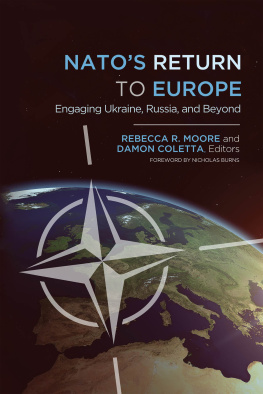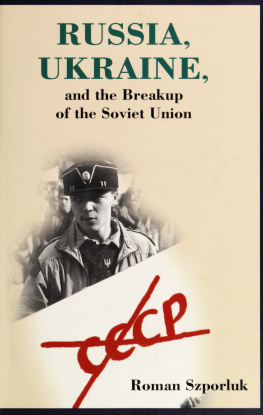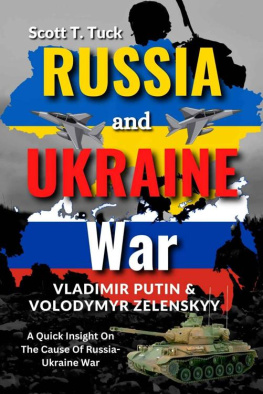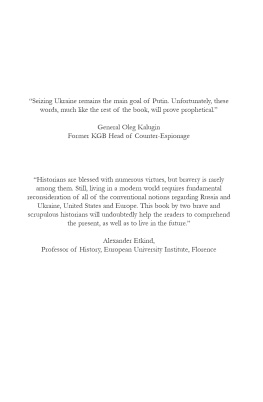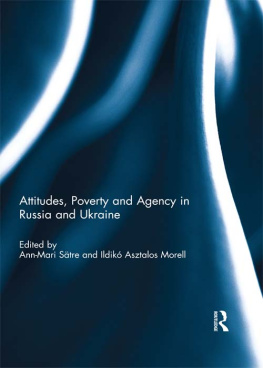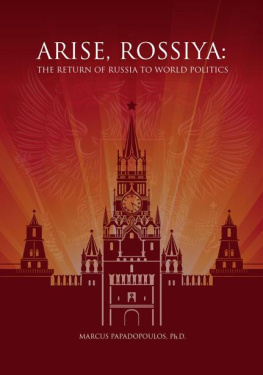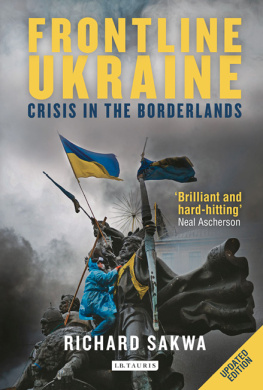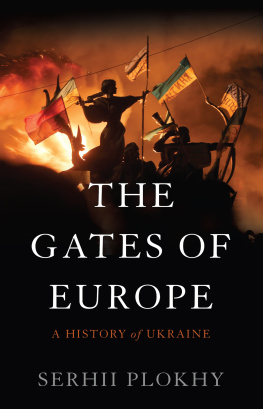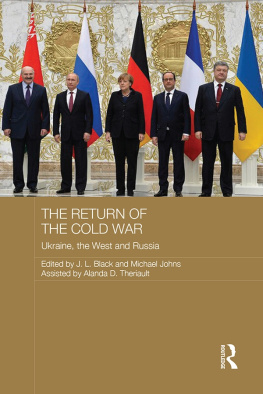NATOS RETURN TO EUROPE
Related Titles from
Georgetown University Press
Exporting Security: International Engagement, Security Cooperation, and the Changing Face of the US Military, Second Edition
DEREK S. REVERON
The Future of Extended Deterrence: The United States, NATO, and Beyond
STFANIE VON HLATKY AND ANDREAS WENGER, EDITORS
High-Table Diplomacy: The Reshaping of International Security Institutions
KJELL ENGELBREKT
NATO in Search of a Vision
GLNUR AYBET AND REBECCA R. MOORE, EDITORS
2017 Georgetown University Press. All rights reserved. No part of this book may be reproduced or utilized in any form or by any means, electronic or mechanical, including photocopying and recording, or by any information storage and retrieval system, without permission in writing from the publisher.
The publisher is not responsible for third-party websites or their content. URL links were active at time of publication.
Library of Congress Cataloging-in-Publication Data
Names: Moore, Rebecca R., editor, author. | Coletta, Damon V., editor, author. | Sloan, Stanley R., writer of afterword.
Title: NATOs return to Europe : engaging Ukraine, Russia, and beyond / Rebecca R. Moore and Damon Coletta, editors ; concluding remarks by Stanley R. Sloan.
Description: Washington, DC : Georgetown University Press, 2017. | Includes bibliographical references and index.
Identifiers: LCCN 2016052171 (print) | LCCN 2017006254 (ebook) | ISBN 9781626164888 (pb : alk. paper) | ISBN 9781626164871 (hc : alk. paper) | ISBN 9781626164895 (eb)
Subjects: LCSH: North Atlantic Treaty OrganizationEurope, EasternHistory. | North Atlantic Treaty OrganizationMilitary relationsEurope, Eastern. | Europe, EasternDefenses. | World politics21st century. | Security, International.
Classification: LCC UA646.8 .N395 2017 (print) | LCC UA646.8 (ebook) | DDC 355/.0310918210947dc23
LC record available at https://lccn.loc.gov/2016052171

This book is printed on acid-free paper meeting the requirements of the American National Standard for Permanence in Paper for Printed Library Materials.
18 17 9 8 7 6 5 4 3 2 First printing
Printed in the United States of America
Cover design by Jeremy John Parker. Cover image courtesy of NASA commons.
Foreword
When Russian president Vladimir Putin invaded Crimea and then occupied and annexed it in 2014, the NATO Alliance faced its greatest test since 9/11. While NATO had no legal or ethical obligation to defend Ukraine from this historic assault on its territorial integrity, it did have a responsibility to defend its own members from Putins wider aggression. It had an interest in supporting Ukraine politically to avoid outright Russian theft of its sovereign rights. And it had an obligation to preserve the peaceful and united Europe that emerged after the end of the Cold War.
German chancellor Angela Merkel, President Barack Obama, and other NATO leaders were correct in deciding against the use of force against Russia after Crimea. Instead, they imposed relatively tough economic sanctions against Russia. More importantly, the crisis motivated NATO to re-examine its own strategy about how best to defend the security of its members in a suddenly unstable Europe.
This important and timely book by some of the finest academic global experts on NATO, edited by professors Rebecca Moore and Damon Coletta, examines the impact of NATOs back-to-the-future focus on Russias renewed threat to the independence and security of Europe. Its authors ask other important questions, including whether this shift to a priority focus on European security will diminish NATOs capacity to meet its interests and obligations beyond Europein Afghanistan, Iraq, and the Greater Middle East. Will NATO be able to juggle its many and diverse missions if a return to a focus on Europe is now the priority?
As a former US ambassador to NATO, I believe the Alliance has no choice but to focus first and foremost on the core security of its members in Europe and the transatlantic region. Putins multiple threats to European security have energized NATO members and caused them to think in new ways about the need for the Alliance to project greater strength and unity in order to achieve a secure and free future.
After all, Putin has made it abundantly clear that he intends to contest both American and NATO power in Europe and their predominant place in the continents security architecture since the fall of communism and the Soviet Union in 1991. Putin invaded Georgia in 2008 and has kept that country divided since. His military forces continue to foment war and division in Eastern Ukraine. And Russia has tried to destabilize our NATO Allies, Estonia, Latvia, and Lithuania. During the past few years, the Russian military has also acted provocatively in testing NATO air and maritime borders in the Baltic and Black Sea regions and even along the borders of the United States.
Given this dangerous and threatening Russian behavior, NATO has responded by deploying troop contingents to Poland and each of the Baltic countries to make clear its determination to protect its members from any further Russian threats and to enforce NATOs Article 5 collective defense mandate if necessary. In addition, President Obama and Secretary of Defense Ash Carter led an effort to rebuild and strengthen US military forces in Europe in 20152016 to ensure we had the capacity to back up our NATO commitments in the event of future Russian adventurism.
As a result, NATO has returned to its original mandatecontainment of Russian power in Eastern Europe. While not a replay of the Cold War, it does represent a renewed commitment to its core missiondefense of the territory of its member states. NATO did not seek or cause this crisis. This was all Putins doing. NATO had no alternative but to strengthen its military position in defense of Alliance commitments and values.
NATOs course correction has earned the active commitment of the European member states, as well as Canada and the US. NATOs message to Moscow is also clearthe Alliance does not want a conflict but will defend its new eastern members, if necessary. While Putin is aggressive, cynical, and opportunistic, he is also rational and understands that, post-Crimea, NATO is determined to protect the territory of its member states.
Until the 2016 American presidential elections, the US, under President Obamas leadership, had exhibited strong solidarity with its Canadian and European allies in confronting this new era of Russian threats and territorial aggrandizement.

 This book is printed on acid-free paper meeting the requirements of the American National Standard for Permanence in Paper for Printed Library Materials.
This book is printed on acid-free paper meeting the requirements of the American National Standard for Permanence in Paper for Printed Library Materials.
